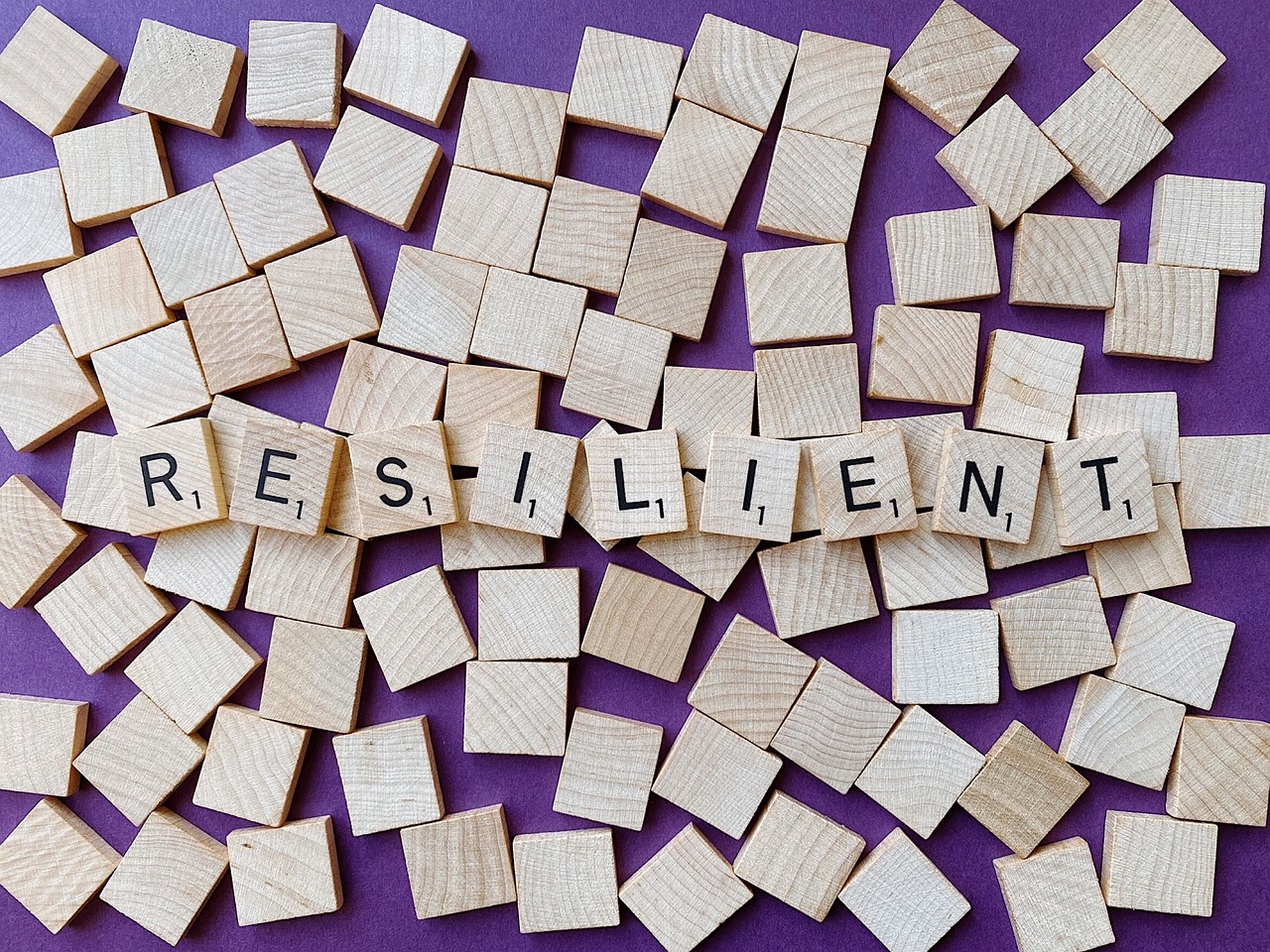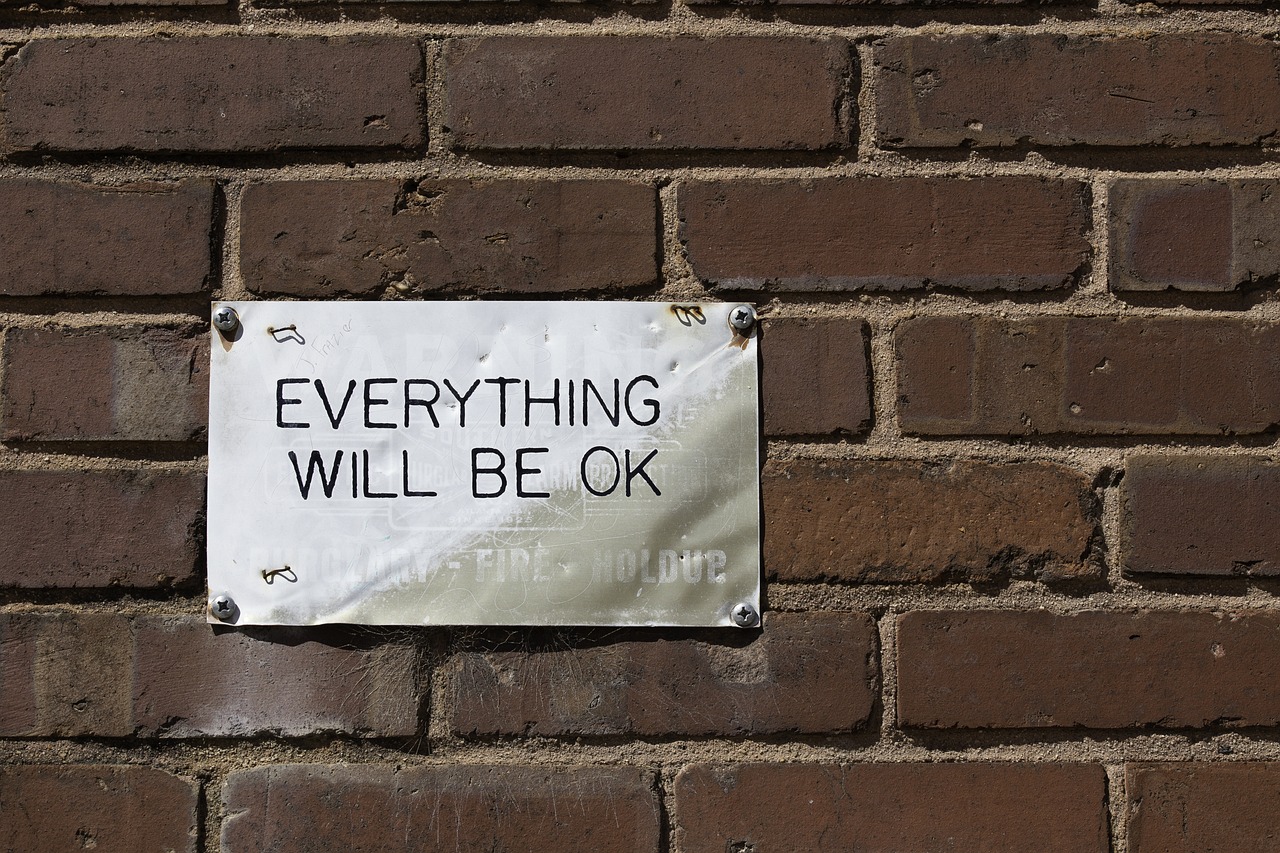How Resilience Helps in Dealing with Chronic Illness?
Dealing with a chronic illness can feel like being caught in a storm without an umbrella. It's unpredictable, often overwhelming, and can leave you feeling drenched and defeated. However, the concept of resilience acts as a sturdy umbrella, helping individuals not just to survive but to thrive despite their health challenges. Resilience is more than just bouncing back; it's about adapting, growing, and finding strength in adversity. When faced with chronic illness, resilience becomes a vital ally, empowering individuals to navigate their health journeys with a sense of purpose and optimism.
So, what exactly is resilience? At its core, resilience is the ability to recover quickly from difficulties. It’s like a rubber band; it stretches and bends but ultimately returns to its original shape. In the context of chronic illness, resilience allows individuals to face their daily battles with a positive mindset. This mindset is crucial because it helps manage the emotional rollercoaster that often accompanies chronic conditions. When you're resilient, you’re better equipped to handle stress, anxiety, and the myriad of challenges that come your way.
Moreover, resilience can significantly improve overall well-being. Studies have shown that individuals who cultivate resilience experience lower levels of depression and anxiety, leading to a more hopeful outlook on life. It’s like having a mental toolkit filled with strategies to tackle whatever comes your way. Whether it’s through mindfulness practices, building a support network, or simply learning to embrace vulnerability, these strategies can enhance resilience and contribute to a better quality of life.
In essence, resilience not only helps individuals cope with the immediate challenges of chronic illness but also fosters a long-term perspective that promotes healing and personal growth. It encourages a proactive approach to health management, where individuals feel empowered to take charge of their lives despite their limitations. Think of resilience as a muscle; the more you use it, the stronger it becomes. And just like any muscle, it requires practice and nurturing.
Ultimately, resilience is about finding meaning in the struggle. It’s about recognizing that while chronic illness may alter your path, it doesn't have to define your journey. With resilience, individuals can transform their experiences into powerful stories of hope, strength, and perseverance. So, how do we cultivate this resilience? The following sections will delve into effective coping strategies, the psychological benefits of resilience, and inspiring personal stories that illustrate the profound impact resilience can have on managing chronic illness.
- What is resilience in the context of chronic illness?
Resilience refers to the ability to adapt and thrive despite the challenges posed by chronic illness, allowing individuals to maintain a positive outlook and manage stress effectively. - How can I build resilience?
Building resilience can involve practices like mindfulness, developing a support network, and engaging in self-reflection through journaling. - Why is resilience important for mental health?
Resilience helps reduce symptoms of depression and anxiety, enabling individuals to maintain hope and a positive perspective on their health and life experiences. - Can resilience be learned?
Absolutely! Resilience can be cultivated through intentional practices and strategies that promote emotional regulation and a supportive community.

The Importance of Resilience
Understanding resilience is crucial for those facing chronic illness, as it empowers individuals to adapt and thrive despite challenges. Imagine resilience as a sturdy bridge that allows you to cross turbulent waters; it provides stability and support when the path ahead seems daunting. When chronic illness strikes, it can feel like a storm is brewing, threatening to sweep you away. However, with a resilient mindset, you can weather the storm and emerge stronger on the other side.
Resilience is not just about bouncing back; it's about growing stronger through adversity. This growth fosters a positive mindset, which is essential in improving overall well-being. When you cultivate resilience, you develop the ability to see challenges as opportunities for growth rather than insurmountable obstacles. It transforms your perspective and helps you maintain hope even in the darkest times.
Moreover, resilience plays a vital role in emotional health. It enables individuals to manage stress effectively, which is particularly important when dealing with the unpredictability of chronic illness. With resilience, you can:
- Adapt to new situations and changes in health status.
- Maintain relationships and social connections, which are crucial for emotional support.
- Develop coping strategies that enhance your quality of life.
In essence, resilience acts as a protective shield against the emotional toll that chronic illness can take. It encourages you to seek help when needed and to lean on your support network. Resilient individuals are often better at communicating their needs and feelings, which is vital for effective management of their health. By embracing resilience, you not only improve your ability to cope with illness but also inspire those around you to do the same.
In summary, resilience is a fundamental aspect of navigating the challenges posed by chronic illness. It fosters adaptability, emotional strength, and a sense of purpose, enabling individuals to lead fulfilling lives despite their health struggles. By understanding and nurturing resilience, you can empower yourself to face life's challenges head-on, transforming adversity into a pathway for growth and healing.

Coping Strategies for Resilience
When it comes to coping with chronic illness, resilience isn't just a buzzword; it’s a lifeline. Imagine navigating a stormy sea without a compass—challenging, right? Resilience acts as that compass, guiding individuals through the turbulent waters of health challenges. By employing effective coping strategies, individuals can enhance their resilience, enabling them to manage stress and emotional turmoil more effectively. This not only leads to better health outcomes but also significantly improves their quality of life.
One of the most powerful tools in building resilience is the practice of mindfulness and meditation. These techniques encourage individuals to focus on the present moment, which can be incredibly grounding when dealing with the unpredictability of chronic illness. Mindfulness allows for a greater awareness of thoughts and feelings, reducing anxiety and promoting emotional regulation. Imagine being able to step back and observe your emotions without letting them dictate your actions—this is the magic of mindfulness.
Incorporating breathing techniques into daily routines can also be transformative. Simple exercises, such as deep diaphragmatic breathing, can foster a sense of calm and control. For instance, when faced with a flare-up of symptoms, taking a moment to breathe deeply can help mitigate stress and promote relaxation. Think of it as a reset button for your mind and body, allowing you to regain focus and clarity amidst the chaos.
Another effective strategy is journaling. This practice serves as a powerful tool for self-reflection, enabling individuals to process their thoughts and emotions. By putting pen to paper, you can articulate your feelings, track your progress, and even celebrate small victories along the way. Journaling can be a therapeutic outlet that strengthens resilience by helping individuals to recognize patterns in their thoughts and behaviors, ultimately leading to greater self-awareness.
Moreover, building a support network is crucial. Friends, family, and support groups can provide emotional and practical assistance, making individuals feel less isolated in their health journeys. Sharing experiences with others who understand the challenges can foster a sense of community and belonging. Just like a sturdy bridge that supports heavy loads, a strong support network can help carry the weight of chronic illness.
In summary, coping strategies such as mindfulness, breathing techniques, journaling, and establishing a support network are essential for enhancing resilience. They not only empower individuals to navigate the complexities of chronic illness but also foster a more hopeful and fulfilling life. So, if you're facing your own health challenges, remember that resilience is not just about enduring; it's about thriving.
- What is resilience in the context of chronic illness? Resilience refers to the ability to adapt and thrive despite the challenges posed by chronic illness, allowing individuals to maintain a positive outlook and improve their well-being.
- How can mindfulness help with chronic illness? Mindfulness can help individuals focus on the present, reduce anxiety, and promote emotional regulation, making it easier to cope with the stress of chronic illness.
- What role does journaling play in building resilience? Journaling helps individuals process their thoughts and emotions, leading to greater self-awareness and the ability to cope more effectively with challenges.

Mindfulness and Meditation
In today's fast-paced world, where stress seems to lurk around every corner, have emerged as powerful tools for enhancing resilience, especially for those grappling with chronic illness. These practices encourage individuals to embrace the present moment, allowing them to step back from the chaos of their thoughts and emotions. Imagine being in a storm, with winds howling and rain pelting down, yet finding a calm center within the eye of that storm. This is the essence of mindfulness — it’s about finding peace amidst the turmoil.
Mindfulness involves focusing on the here and now, paying attention to your thoughts, feelings, and bodily sensations without judgment. This practice can help individuals with chronic illnesses to navigate their experiences with greater ease. By acknowledging their feelings and physical sensations, they can respond to them more effectively rather than react impulsively. For example, someone experiencing pain may find that instead of resisting it, they can observe it, breathe through it, and thus reduce their emotional response to the discomfort.
Meditation, on the other hand, is a structured practice that often involves techniques such as guided imagery, deep breathing, or mantra repetition. These methods can significantly lower stress levels and promote emotional regulation. Research has shown that regular meditation can lead to reduced anxiety and improved mood, both of which are crucial for anyone dealing with the challenges of chronic illness. A study found that participants who practiced mindfulness meditation reported a 30% reduction in symptoms related to anxiety and depression after just eight weeks!
To get started with mindfulness and meditation, one doesn’t need to embark on a complex journey. Here are some simple steps:
- Start Small: Begin with just a few minutes each day. Gradually increase the time as you become more comfortable.
- Find Your Space: Choose a quiet place where you can sit comfortably without distractions.
- Focus on Your Breath: Pay attention to your breathing. Inhale deeply through your nose and exhale through your mouth.
- Let Thoughts Come and Go: Acknowledge any thoughts that arise, but don’t dwell on them. Let them pass like clouds in the sky.
Incorporating mindfulness and meditation into daily routines can create a sense of calm and control, allowing individuals to better manage the emotional and physical challenges associated with chronic illness. As they develop this practice, they may find themselves feeling more grounded, less reactive, and more capable of handling whatever life throws their way.
Ultimately, the journey of mindfulness and meditation is personal and unique to each individual. It’s about discovering what works best for you and embracing the process. As you cultivate this skill, remember that resilience isn’t just about enduring; it’s about thriving amidst adversity and finding joy in the little moments, even when the going gets tough.
- What is mindfulness? Mindfulness is the practice of being present in the moment and observing your thoughts and feelings without judgment.
- How can meditation help with chronic illness? Meditation can reduce stress, improve emotional regulation, and enhance overall well-being, making it easier to manage chronic illness.
- Do I need to meditate for a long time to see benefits? No, even a few minutes of meditation daily can lead to significant improvements in mental health and resilience.
- Can mindfulness and meditation be practiced anywhere? Yes, these practices can be done anywhere, whether at home, work, or even while commuting, as long as you can find a moment of quiet.

Breathing Techniques
Breathing techniques can be a game-changer for individuals navigating the tumultuous waters of chronic illness. Imagine being caught in a storm, with waves crashing all around you; now, picture yourself finding that calm center within—a safe harbor where you can regain control. This is precisely what effective breathing exercises can offer. By focusing on your breath, you can ground yourself, reduce anxiety, and create a sense of calm amidst the chaos.
One of the simplest yet most powerful techniques is diaphragmatic breathing, often referred to as "belly breathing." This technique involves inhaling deeply through your nose, allowing your belly to rise, and then exhaling slowly through your mouth. This method not only increases oxygen flow but also activates your body's relaxation response, making it an excellent tool for managing stress related to chronic illness.
Another beneficial technique is the 4-7-8 breathing method. Here’s how it works:
- Inhale quietly through your nose for a count of 4.
- Hold your breath for a count of 7.
- Exhale completely through your mouth, making a whoosh sound for a count of 8.
Repeating this cycle four times can help calm your nervous system, making it particularly useful during moments of heightened anxiety or discomfort.
For those who prefer a more structured approach, incorporating breathing techniques into a daily routine can yield significant benefits. Try setting aside just a few minutes each day to practice. You might find it helpful to create a cozy space in your home where you can sit or lie down comfortably. As you breathe, visualize each inhalation filling you with strength and each exhalation releasing tension and worry. This practice not only nurtures resilience but also enhances your overall sense of well-being.
In addition to these techniques, consider integrating guided breathing exercises available through various apps or online platforms. These resources often provide soothing music and gentle prompts, making it easier to stay focused and engaged. The key is to find a method that resonates with you personally, allowing you to cultivate a practice that feels both beneficial and enjoyable.
Ultimately, mastering breathing techniques is about more than just managing stress; it's about empowering yourself. Just like a captain steering a ship through rough seas, you can learn to navigate the challenges of chronic illness with grace and resilience. So, take a deep breath, and let the journey of self-discovery begin.
1. How often should I practice breathing techniques?
It's recommended to practice daily, even if it's just for a few minutes. Consistency helps in building resilience and reducing anxiety over time.
2. Can breathing techniques help with physical pain?
While breathing techniques primarily help with emotional regulation and stress reduction, they can also distract from pain and help you manage your response to discomfort.
3. Are there specific breathing techniques for different situations?
Yes! Some techniques are better suited for calming anxiety, while others may energize you. It's beneficial to explore various methods to find what works best for your needs.

Journaling for Self-Reflection
Journaling is more than just putting pen to paper; it's a transformative practice that can significantly enhance your resilience when dealing with chronic illness. Imagine your thoughts as a swirling storm in your mind, and journaling as the calm eye of that storm. By writing down your feelings, experiences, and reflections, you create a safe space to explore and understand your emotions. This process not only helps in clarifying your thoughts but also serves as a powerful tool for self-discovery.
When you take the time to journal, you essentially give yourself permission to feel, to vent, and to question. It's like having a conversation with your inner self, where you can express fears, joys, and everything in between. For many, this act of writing becomes a therapeutic outlet that alleviates stress and anxiety, which are often exacerbated by chronic illness. It allows you to process complex emotions and gain insights into your health journey.
Here are a few key benefits of journaling for self-reflection:
- Emotional Clarity: Writing helps you articulate feelings that may be difficult to express verbally, leading to greater emotional awareness.
- Stress Reduction: The act of writing can be cathartic, providing an emotional release that reduces overall stress levels.
- Tracking Progress: Journaling allows you to document your health journey, helping you recognize patterns and triggers that affect your well-being.
- Goal Setting: It provides a platform to set and reflect on personal goals, making it easier to stay focused and motivated.
To get started with journaling, you don’t need fancy notebooks or elaborate setups. A simple notebook or even a digital app can suffice. The key is to make it a regular habit. Consider setting aside a few minutes each day or week to reflect on your thoughts and feelings. You might find it helpful to prompt yourself with questions like:
- What challenges did I face today, and how did I cope with them?
- What am I grateful for despite my health struggles?
- How did I feel emotionally and physically throughout the day?
Incorporating journaling into your routine can be a game-changer. It not only strengthens your resilience but also fosters a deeper understanding of yourself. Just as a gardener tends to their plants, nurturing them to grow, journaling nurtures your emotional health, allowing you to flourish even amidst the challenges of chronic illness. So grab that pen, open your heart, and start writing your story!

Building a Support Network
When it comes to managing chronic illness, one of the most powerful tools at your disposal is a support network. Imagine trying to navigate a stormy sea without a lifeboat; that’s what facing health challenges can feel like without a solid group of people by your side. A support network can include family, friends, healthcare professionals, and even support groups, all of whom can provide essential emotional and practical assistance. Having someone to talk to, share experiences with, or even just sit in silence can make a world of difference.
But why is building this network so crucial? First, it helps to combat feelings of isolation. Chronic illness can often leave individuals feeling alone in their struggles, but knowing that there are others who understand can provide immense comfort. Additionally, a support network can offer practical help—whether that’s accompanying you to doctor’s appointments, helping with daily tasks, or simply being there to listen. This type of assistance can relieve some of the burdens that come with managing a chronic condition.
Furthermore, the emotional support from a network can significantly enhance your resilience. When you have people who believe in you and your ability to overcome challenges, it becomes easier to maintain a positive outlook. They can help you celebrate small victories, remind you of your strength during tough times, and keep you grounded when the going gets tough. In fact, studies have shown that individuals with strong social support systems tend to experience better health outcomes.
So, how do you go about building this vital support network? Here are a few strategies:
- Reach Out: Don’t hesitate to let friends and family know what you’re going through. Most people want to help but may not know how. Just a simple conversation can open the door to support.
- Join Support Groups: Look for local or online support groups where you can connect with others facing similar challenges. Sharing experiences can foster a sense of community.
- Engage with Healthcare Professionals: Your doctors and therapists can provide not only medical support but also connect you with resources that can help.
Ultimately, building a support network is about creating a circle of trust and understanding. It’s about finding those who will stand by you, cheer you on, and help you navigate the complexities of chronic illness. Remember, you don’t have to go through this journey alone; there are people out there ready to support you. Embrace the power of community, and you’ll find that together, you can weather any storm.
- What is a support network? A support network is a group of people who provide emotional, practical, and informational support to someone facing challenges, such as chronic illness.
- How can I find a support group? You can find support groups through hospitals, community centers, or online platforms dedicated to chronic illness support.
- What role do family and friends play in a support network? Family and friends provide emotional support, practical help, and companionship, playing a crucial role in your overall well-being.

The Psychological Benefits of Resilience
When it comes to managing chronic illness, resilience is not just a buzzword; it's a lifeline. Imagine facing a storm without an umbrella—overwhelming, right? Now, think of resilience as that sturdy umbrella that helps shield you from the downpour of negative emotions and stressors. The psychological benefits of resilience are profound, as it empowers individuals to not only endure but also thrive amidst the chaos of chronic health challenges.
One of the most significant advantages of resilience is its ability to reduce symptoms of depression and anxiety. When faced with the daily struggles of a chronic condition, it’s easy to spiral into feelings of hopelessness. However, resilient individuals often possess a unique outlook that allows them to see beyond their circumstances. They understand that while they may be battling illness, they are not defined by it. This shift in perspective can lead to a decrease in feelings of despair and an increase in overall mental well-being.
Moreover, resilience fosters a hopeful perspective. It’s like wearing glasses that help you see the silver lining in every cloud. This hopeful mindset is crucial when navigating the ups and downs of chronic illness. Instead of succumbing to negativity, resilient individuals are more likely to focus on their goals and aspirations, which can lead to a more fulfilling life despite the challenges they face. They often engage in positive self-talk and affirmations that reinforce their ability to cope and adapt, making them less susceptible to the emotional toll of their condition.
Another key benefit of resilience is the development of emotional regulation skills. Individuals who cultivate resilience learn how to manage their emotions effectively, allowing them to respond to stressors in a balanced manner. This emotional control is essential in the context of chronic illness, where feelings of frustration, sadness, and anger can arise unexpectedly. By practicing techniques such as mindfulness and meditation, resilient individuals can maintain a sense of calm and clarity, helping them navigate their health journeys with greater ease.
To illustrate the psychological benefits of resilience, let’s consider a few key areas:
| Psychological Benefit | Description |
|---|---|
| Reduced Anxiety | Resilient individuals experience lower levels of anxiety as they develop coping strategies to manage stress. |
| Improved Mood | By maintaining a hopeful outlook, resilient individuals often report higher levels of happiness and satisfaction. |
| Stronger Coping Mechanisms | Resilience equips individuals with tools to face challenges head-on, leading to better stress management. |
In conclusion, the psychological benefits of resilience are not just theoretical; they are tangible outcomes that can significantly enhance the quality of life for those dealing with chronic illness. By fostering resilience, individuals can cultivate a mindset that not only helps them cope with their current challenges but also prepares them to face future obstacles with courage and determination. It’s a journey of transformation, where each step taken towards resilience is a step towards a brighter, more hopeful future.
- What is resilience? Resilience is the ability to adapt and bounce back from adversity, challenges, or trauma.
- How can I build resilience? You can build resilience through mindfulness practices, developing a support network, and focusing on positive self-talk.
- Why is resilience important for chronic illness? Resilience helps individuals manage stress, reduce anxiety, and maintain a hopeful outlook, which is essential for coping with chronic health conditions.

Emotional Regulation
Emotional regulation is an essential skill for anyone navigating the turbulent waters of chronic illness. It’s like having a compass that helps steer through the stormy seas of emotional turmoil. When faced with the challenges of a chronic condition, individuals often experience a rollercoaster of emotions—fear, frustration, sadness, and even anger. Learning how to regulate these emotions can significantly enhance one’s resilience, allowing for a more balanced and fulfilling life.
At its core, emotional regulation involves recognizing and managing your emotional responses. It’s about understanding that it’s okay to feel overwhelmed at times, but it’s equally important to find ways to cope and move forward. For many, this might mean developing strategies to calm the mind during moments of distress or finding constructive outlets for their feelings. Techniques such as mindfulness, deep breathing, and even engaging in hobbies can serve as effective tools for emotional regulation.
Consider this: if emotional regulation were a muscle, it would require consistent training to become strong. Just like lifting weights at the gym, the more you practice, the more adept you become at handling life’s challenges. This can include recognizing triggers that lead to emotional upheaval, such as specific situations or thoughts, and learning how to respond to them in a healthier way. For instance, when faced with a flare-up of symptoms, instead of succumbing to despair, one might choose to engage in a calming activity or reach out to a supportive friend.
To illustrate the importance of emotional regulation, let's look at a few key strategies that can be beneficial:
- Self-Awareness: Understanding your emotional triggers is the first step. Keeping a journal can help you identify patterns in your emotional responses.
- Mindfulness Practice: Incorporating mindfulness techniques, such as meditation or focused breathing, can help ground you in the present, reducing anxiety and promoting emotional clarity.
- Positive Self-Talk: Replacing negative thoughts with positive affirmations can shift your mindset and foster resilience. Remind yourself that it's okay to have bad days.
Moreover, emotional regulation is not just about managing negative emotions; it also involves cultivating positive feelings. Engaging in activities that bring joy or fulfillment can create a buffer against the stresses of chronic illness. Whether it’s painting, gardening, or simply enjoying a good book, these moments of happiness can be powerful antidotes to the challenges faced daily.
In summary, mastering emotional regulation is a journey, not a destination. It requires patience and practice, but the benefits are profound. By developing this skill, individuals can navigate the complexities of chronic illness with greater ease, fostering a sense of control and empowerment. It’s a vital component of resilience, enabling one to not only survive but thrive amidst adversity.
- What is emotional regulation? Emotional regulation refers to the ability to manage and respond to emotional experiences in a healthy way.
- How can emotional regulation help with chronic illness? It helps individuals cope with the emotional challenges of chronic illness, leading to better mental health and overall well-being.
- What are some techniques for improving emotional regulation? Techniques include mindfulness, journaling, deep breathing, and positive self-talk.
- Can emotional regulation be learned? Yes, emotional regulation is a skill that can be developed with practice and commitment.

Positive Affirmations
Positive affirmations are more than just feel-good phrases; they are powerful tools that can transform the way individuals perceive their health and challenges. When faced with chronic illness, it’s easy to fall into a cycle of negative self-talk. However, by consciously adopting positive affirmations, individuals can shift their mindset, empowering themselves to tackle obstacles head-on.
Imagine standing in front of a mirror each morning and telling yourself, "I am strong, and I can overcome this." This simple act may seem trivial, but it’s akin to planting a seed of resilience in your mind. Over time, with consistent practice, these affirmations can grow and flourish, helping to drown out the negative chatter that often accompanies chronic illness.
Research has shown that positive affirmations can lead to significant improvements in mental health by:
- Boosting self-esteem: Regularly repeating affirmations can help reinforce a sense of self-worth.
- Reducing stress: A positive mindset can lower cortisol levels, which are often elevated in stressful situations.
- Enhancing coping skills: Affirmations can prepare individuals to face challenges with a more optimistic outlook.
To effectively incorporate positive affirmations into your daily routine, consider the following tips:
- Be specific: Tailor your affirmations to address personal challenges or goals. Instead of saying, "I am healthy," try "I am taking steps every day to improve my health."
- Make it a habit: Set aside time each day—perhaps during your morning routine or before bed—to repeat your affirmations.
- Visualize success: As you affirm your statements, visualize yourself achieving those goals. This mental imagery can reinforce your beliefs.
Ultimately, the journey of managing chronic illness is deeply personal, and positive affirmations can serve as a beacon of hope. They remind individuals that while challenges may arise, their strength and resilience are far greater than any obstacle they may face. So, the next time you find yourself in a moment of doubt, remember to pause, breathe, and affirm your power. After all, you are the author of your story, and it’s time to write a narrative of strength and positivity.
Q: What are positive affirmations?
A: Positive affirmations are simple, positive statements that challenge negative thoughts and promote a more optimistic mindset.
Q: How often should I practice positive affirmations?
A: It's beneficial to practice affirmations daily, ideally at the same time each day to build a consistent habit.
Q: Can positive affirmations really make a difference?
A: Yes! Research supports that positive affirmations can improve self-esteem, reduce stress, and enhance overall mental well-being.

Personal Stories of Resilience
Real-life stories of individuals who have demonstrated resilience in the face of chronic illness can inspire and motivate others, showcasing the power of perseverance and hope in overcoming adversity. Take, for example, the journey of Sarah, a vibrant woman in her early thirties who was diagnosed with multiple sclerosis. Initially, Sarah felt overwhelmed by the diagnosis, as if a dark cloud had settled over her life. However, instead of succumbing to despair, she chose to fight back. Sarah began to document her journey through a blog, sharing not just her struggles but also her victories, no matter how small. This act of sharing not only helped her process her emotions but also created a community of support around her.
Another inspiring tale comes from Mark, a former athlete who faced a debilitating injury that left him unable to pursue his passion. At first, Mark felt lost, like a ship adrift at sea without a compass. However, through therapy and support from friends, he found a new purpose in life by volunteering to coach young athletes. This experience not only helped him regain a sense of control but also fostered resilience as he learned to adapt to his new reality. Mark's story illustrates how turning adversity into an opportunity can lead to growth and transformation.
These personal narratives often highlight valuable lessons learned through the journey of chronic illness, emphasizing the importance of resilience and the strength found in vulnerability and community support. For instance, many individuals find that sharing their experiences not only helps them heal but also encourages others to open up about their struggles. This creates a ripple effect, fostering a sense of community that is crucial for emotional well-being.
To further illustrate the impact of resilience, consider the following table that summarizes the key takeaways from these personal stories:
| Individual | Challenge Faced | Resilience Strategy | Outcome |
|---|---|---|---|
| Sarah | Multiple Sclerosis Diagnosis | Blogging and Community Building | Emotional healing and support network |
| Mark | Debilitating Injury | Volunteering and Coaching | Regained purpose and control |
In conclusion, the stories of individuals like Sarah and Mark remind us that resilience is not just about enduring hardship; it's about transforming challenges into opportunities for growth. These narratives serve as a beacon of hope, encouraging others facing similar battles to embrace their journey with courage and tenacity. Remember, every story of resilience is a testament to the human spirit's ability to rise above adversity, proving that even in the darkest times, there is a light that can guide us forward.
- What is resilience? Resilience is the ability to bounce back from challenges and adapt positively to adversity.
- How can I build resilience? You can build resilience through mindfulness, developing a support network, and practicing self-reflection.
- Why is resilience important for chronic illness? Resilience helps individuals manage stress, maintain a positive outlook, and improve their overall well-being while dealing with chronic illness.
- Can sharing my story help me become more resilient? Yes, sharing your experiences can foster a sense of community and support, which is essential for emotional healing.

Overcoming Obstacles
When faced with the relentless challenges of chronic illness, many individuals find themselves at a crossroads. It's easy to feel overwhelmed, as if you're standing at the base of a mountain that seems impossible to climb. However, the stories of those who have successfully navigated these treacherous paths are nothing short of inspiring. Each obstacle can be viewed not just as a barrier but as an opportunity for growth, transformation, and resilience.
Take, for instance, the story of Sarah, a vibrant artist who was diagnosed with rheumatoid arthritis. Initially, she felt like her world was crumbling. The pain and fatigue were relentless, and it seemed like her passion for painting would be snuffed out. But instead of succumbing to despair, Sarah decided to adapt her artistic process. She began using adaptive tools that allowed her to paint while seated, and she experimented with new mediums that required less physical strain. This not only helped her continue her craft but also opened up a new realm of creativity that she had never explored before.
Sarah's journey illustrates a crucial point: resilience is often born from the very challenges we face. When we encounter obstacles, we have a choice. We can either let them defeat us or use them as stepping stones toward something greater. This mindset shift is essential. It's about viewing setbacks as setups for comebacks. Each small victory, whether it's managing a symptom better or finding a new way to engage in a beloved hobby, builds confidence and fortitude.
Moreover, the process of overcoming obstacles often leads to a deeper understanding of oneself. Individuals begin to recognize their strengths and weaknesses, which can be empowering. For example, consider John, who has been battling diabetes for years. He initially struggled with managing his diet and exercise routine, often feeling defeated by his cravings and fatigue. But through trial and error, he learned to listen to his body and developed a structured meal plan that suited his lifestyle. This not only improved his health but also instilled a sense of discipline and self-awareness that he previously lacked.
In addition to personal growth, overcoming obstacles can foster a sense of community. Many individuals find solace in sharing their experiences with others who are facing similar challenges. Support groups, whether in-person or online, become a lifeline, offering encouragement and practical advice. The power of community cannot be overstated; it reminds us that we are not alone in our struggles. As we share our stories, we also inspire others to persevere.
Ultimately, the journey of overcoming obstacles is unique for everyone. It requires patience, persistence, and a willingness to embrace change. The road may be bumpy, but with each challenge faced, individuals cultivate a resilient spirit that not only helps them cope with their chronic illness but also enriches their lives in ways they never imagined possible. So, the next time you encounter an obstacle, remember Sarah and John. Let their stories remind you that resilience is not just about surviving; it's about thriving in the face of adversity.
- What is resilience?
Resilience is the ability to adapt and bounce back from adversity, stress, or challenges. It is a crucial trait for individuals dealing with chronic illness. - How can I build resilience?
Building resilience can be achieved through various strategies, such as practicing mindfulness, developing a support network, and maintaining a positive outlook. - Can resilience improve my quality of life?
Yes! Resilience can lead to better coping mechanisms, reduced anxiety, and an overall improved quality of life when managing chronic illness. - Are there specific techniques to overcome obstacles?
Techniques like journaling for self-reflection, practicing breathing exercises, and seeking community support can be effective in overcoming obstacles.

Lessons Learned
This article explores the concept of resilience and its vital role in managing chronic illness, highlighting coping strategies, psychological benefits, and personal stories of individuals who embody resilience in their health journeys.
Understanding resilience is crucial for those facing chronic illness, as it empowers individuals to adapt and thrive despite challenges, fostering a positive mindset and improving overall well-being.
Effective coping strategies can enhance resilience, allowing individuals to manage stress and emotional turmoil associated with chronic illness, leading to better health outcomes and improved quality of life.
Practicing mindfulness and meditation can significantly boost resilience by promoting emotional regulation, reducing anxiety, and helping individuals focus on the present moment, thus enhancing their coping abilities.
Incorporating breathing techniques into daily routines can help individuals manage stress and anxiety, fostering a sense of calm and control in the face of chronic illness challenges.
Journaling serves as a powerful tool for self-reflection, allowing individuals to process their thoughts and emotions, ultimately strengthening their resilience and coping mechanisms.
A strong support network plays a vital role in fostering resilience, providing emotional and practical assistance, and helping individuals feel less isolated in their health journeys.
Resilience positively impacts mental health, reducing symptoms of depression and anxiety, and enabling individuals to maintain a hopeful perspective, which is essential in managing chronic illness.
Developing emotional regulation skills enhances resilience, allowing individuals to respond to stressors more effectively and maintain a balanced emotional state while navigating the challenges of chronic illness.
Using positive affirmations can reinforce a resilient mindset, encouraging individuals to challenge negative thoughts and cultivate a more optimistic outlook on their health and life experiences.
Real-life stories of individuals who have demonstrated resilience in the face of chronic illness can inspire and motivate others, showcasing the power of perseverance and hope in overcoming adversity.
Many individuals have faced significant obstacles due to chronic illness but have emerged stronger, illustrating how resilience can lead to personal growth and transformation.
Personal narratives often highlight valuable lessons learned through the journey of chronic illness, emphasizing the importance of resilience and the strength found in vulnerability and community support. For instance, many individuals discover that embracing their condition rather than fighting against it can lead to a more fulfilling life. They learn that resilience is not just about bouncing back but also about navigating through the storm with grace and courage.
Moreover, stories reveal that vulnerability can be a source of strength. Sharing experiences with others fosters connections, reminding individuals that they are not alone in their struggles. This sense of community can be incredibly empowering, reinforcing the idea that asking for help is a sign of strength, not weakness. In fact, here are some key lessons frequently shared by resilient individuals:
- Acceptance: Embracing their condition allows for a more peaceful coexistence with chronic illness.
- Connection: Building relationships with others facing similar challenges creates a support system that enhances resilience.
- Self-Compassion: Being kind to oneself during difficult times is crucial for maintaining emotional well-being.
- Growth Mindset: Viewing challenges as opportunities for growth fosters a more positive outlook on life.
Ultimately, these lessons serve as a reminder that while chronic illness can be daunting, resilience equips individuals with the tools needed to navigate their journey with strength and hope.
- What is resilience? Resilience is the ability to adapt to challenges and bounce back from adversity, especially in the context of health issues.
- How can I build resilience? You can build resilience through mindfulness practices, journaling, and developing a strong support network.
- Why is resilience important for chronic illness? Resilience helps individuals manage stress, maintain a positive outlook, and improve their overall quality of life despite the challenges posed by chronic illness.
- Can resilience be learned? Yes, resilience can be developed over time through practice and support, allowing individuals to better cope with life's difficulties.
Frequently Asked Questions
- What is resilience and why is it important for chronic illness?
Resilience is the ability to bounce back from adversity and adapt to challenging situations. For individuals dealing with chronic illness, resilience is crucial because it empowers them to manage their health challenges more effectively, fostering a positive mindset and improving overall well-being. It helps them navigate the ups and downs of their condition, enabling them to thrive despite the difficulties they face.
- What coping strategies can enhance resilience?
There are several effective coping strategies that can enhance resilience in the face of chronic illness. These include mindfulness and meditation, which promote emotional regulation and reduce anxiety. Breathing techniques can also help manage stress, while journaling allows for self-reflection and processing of emotions. Building a strong support network is equally important, as it provides emotional and practical assistance, helping individuals feel less isolated.
- How does resilience impact mental health?
Resilience has a profound positive impact on mental health, particularly for those with chronic illness. It helps reduce symptoms of depression and anxiety, enabling individuals to maintain a hopeful perspective. By developing emotional regulation skills, they can respond to stressors more effectively, leading to a more balanced emotional state while navigating their health challenges.
- Can you share examples of personal stories of resilience?
Absolutely! Many individuals have inspiring stories of overcoming significant obstacles due to chronic illness. These personal narratives often highlight the power of perseverance and the lessons learned through their journeys. They showcase how resilience can lead to personal growth and transformation, emphasizing the strength found in vulnerability and the importance of community support.
- What role do positive affirmations play in building resilience?
Positive affirmations are powerful tools for reinforcing a resilient mindset. By encouraging individuals to challenge negative thoughts, these affirmations help cultivate a more optimistic outlook on health and life experiences. This shift in perspective is essential for maintaining resilience, as it allows individuals to focus on their strengths and potential rather than their limitations.



















